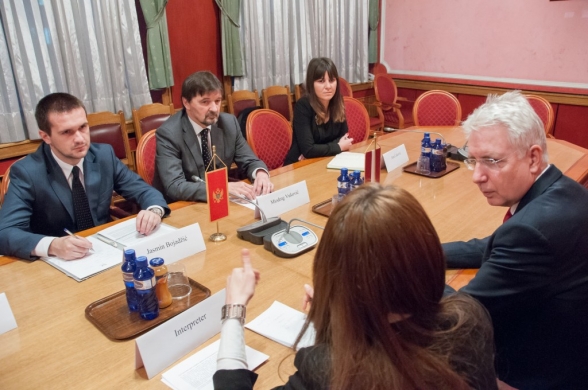On that occasion, the Chairperson Vuković congratulated the newly appointed Ambassador on his assuming office and pointed out his pleasure regarding relations of the two countries.
Mr Vuković informed the Ambassador Lieģis on the current social and political situation in Montenegro and the current affairs in the focus of attention of the parliamentarians. Pointing out the significance of the carried out reforms in the years following the independence, Mr Vuković said that the country of Montenegro had always been a partner, and not a problem, which was something to be proud of, having in mind the turbulent period behind us.
In the meeting, Mr Vuković also expressed expectation that in the following meeting of the EU Council, the decision on the opening of Chapters 23 and 24 would be adopted, which would mark another in line of successful years in the relation Montenegro-EU, and the opportunity to lead the region towards the EU membership the following year as well, by opening a series of others, no less significant, chapters.
The Ambassador Lieģis especially pointed out that Montenegro represented an example in the region with regard to adoption of European standards and promotion of regional cooperation, and that it could rightly consider itself the leader in the European and Euro-Atlantic integration. Mr Lieģis also expressed full support of the Republic of Latvia for the European and Euro-Atlantic aspirations of Montenegro, expressing expectation that, by the end of the year, a decision on opening of the most demanding negotiation chapters would have been adopted in Brussels.
The importance of intensifying the political contact between the officials of the two countries in the following period was emphasised in the meeting, especially at the parliamentary level, having in mind that the Republic of Latvia would take over the EU presidency on 1 January 2015. Additionally, the initiative for forming of the parliamentary Friendship Groups between the two countries and intensifying of cooperation between the foreign policy committees of the two parliaments was pointed out.









